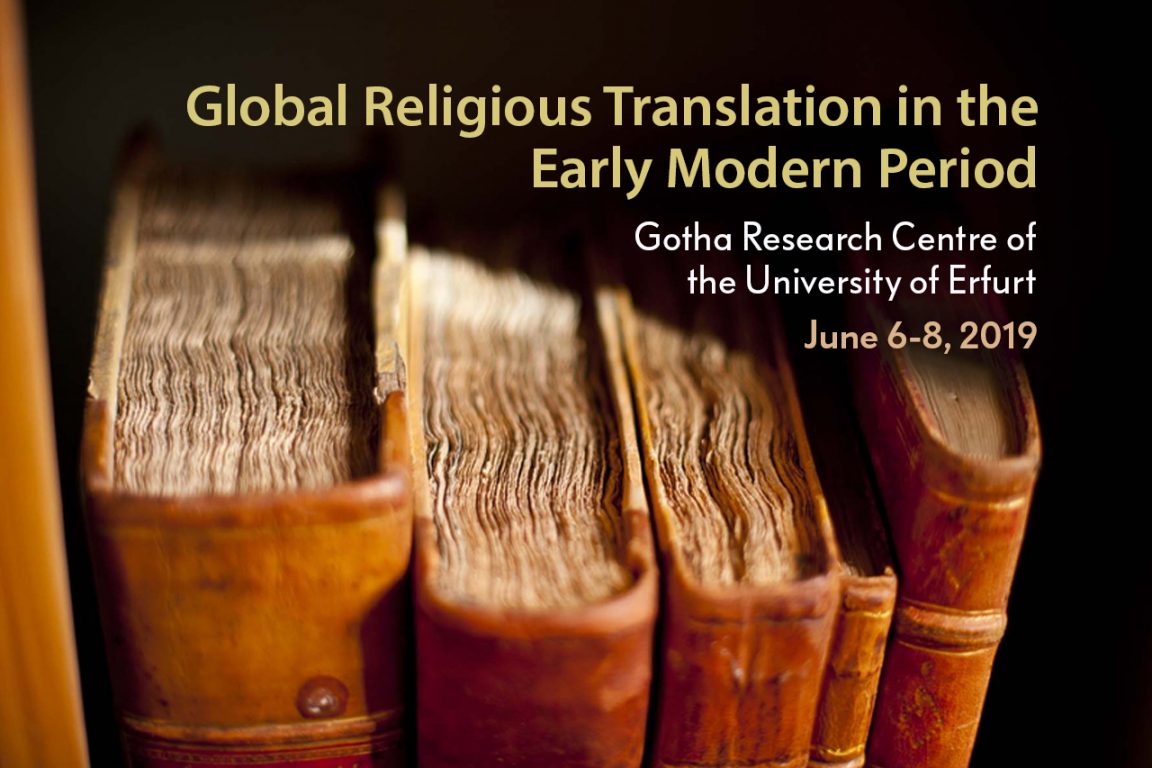Global Religious Translation in the Early Modern Period

About The Event
Date: June 6-8, 2019
Venue: Gotha Research Centre of the University of Erfurt, Gotha, Germany
Confirmed Speakers: Peter Burke, R. Po-chia Hsia
In 2017 a conference at the Research Centre Gotha sought to answer this call by Burke and Hsia by focusing on the translations, transformations and adaptations of religious texts across cultural and national boundaries in the Early Modern period. The conference was highly productive, but focused mainly on exchange between different European actors.
Now, a new conference is being planned to expand the boundaries of the first conference.
Religious translations served individuals and communities in a variety of ways, from missionizing to polemical purposes to the defense of persecuted minorities and beyond. In some cases, texts underwent multiple translations, often through a “bridge” language and culture. Multiple layers of decontextualisation and recontextualisation created displacements. Translations designed to spread meaning thus also changed it, and indeed, translators’ goals often diverged from those of the original authors, as when Christian scholars repurposed Jewish and Islamic texts to “prove” aspects of Christianity. Religious communities, translators, publishers and patrons thus implemented conscious translation strategies to accomplish their goals, achieving both foreseen and unforeseen shifts in the cultural landscapes of the Early Modern world.
Source: h-net.org
Location
Gotha Research Centre of the University of Erfurt


We're always eager to hear from you.
If you’d like to learn more about us or have a general comments and suggestions about the site, email us at